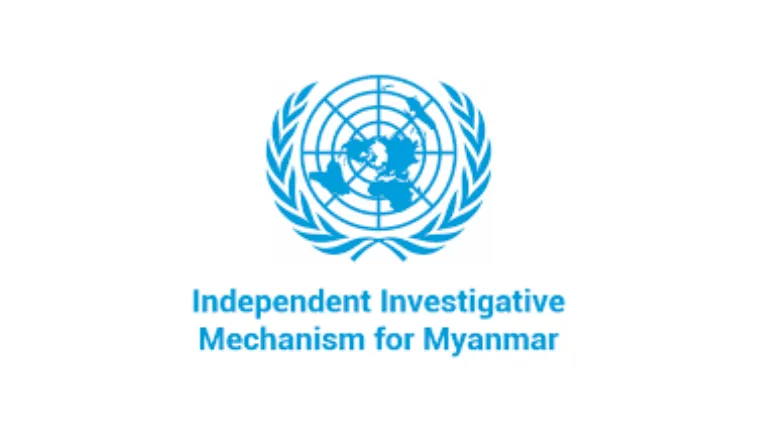Evidence of an escalation in brutal atrocities committed by Myanmar military
13 August 2024

Geneva, 13 August 2024 – There is substantial evidence that brutal war crimes and crimes against humanity committed by the Myanmar military have escalated at an alarming rate across the country, according to information collected and analysed by the Independent Investigative Mechanism for Myanmar (Mechanism) and detailed in its Annual Report released today.
The Report focuses on the period 1 July 2023 to 30 June 2024 – a time when armed conflicts increased across Myanmar as the challenges to military rule intensified.
During this time, the Mechanism collected significant evidence of more intensive and violent war crimes, such as aerial attacks on schools, religious buildings and hospitals where there was no apparent military target, and physical mutilations against people detained during the armed conflicts, including beheadings and public displays of disfigured and sexually mutilated bodies.
“We have collected substantial evidence showing horrific levels of brutality and inhumanity across Myanmar. Many crimes have been committed with an intent to punish and induce terror in the civilian population,” said Nicholas Koumjian, Head of the Mechanism.
The Mechanism is also investigating the unlawful imprisonment, including arbitrary detention and manifestly unfair trials, of perceived opponents of the military junta. Thousands of people have been arrested and many tortured or killed in detention. There is abundant evidence of systematic torture, including severe physical and mental abuse such as beatings, electric shocks, strangulations and sleep deprivation. There is also evidence of gang rape, the burning of sexual body parts and other violent sexual and gender-based crimes committed in detention. The victims include people of all genders and ages, including children.
“No one has been held accountable for any crimes, which emboldens perpetrators and deepens the culture of impunity in the country. We are trying to break this cycle. I believe the Mechanism has made considerable progress in building criminal cases against those most responsible for these crimes,” said Koumjian.
The findings in the Report are based on information and evidence collected from more than 900 sources, including more than 400 eyewitness testimonies, and additional evidence such as photographs, videos, audio material, documents, maps, geospatial imagery, social media posts and forensic evidence.
While the vast majority of information collected by the Mechanism concerns crimes committed by the Myanmar security forces, there is also credible evidence of crimes committed by armed groups which are fighting against the military. This includes summary executions of civilians suspected of being military informers or collaborators.
While the Mechanism is working hard to investigate the high volume of crimes committed since the military takeover in February 2021, it also maintains its commitment to the investigation of earlier crimes committed against the Rohingya during the Myanmar military’s 2016 and 2017 clearance operations. In particular, the Mechanism has analysed the movements of military units, the resettlement practices and policies intended to attract the migration of non-Rohingya people to Rakhine State, and the quantities and qualities of weapons possessed by the Arakan Rohingya Salvation Army at the time of the clearance operations.
The Mechanism has shared these analyses, along with a vast volume of evidence, with authorities working on ongoing cases concerning the Rohingya at the International Criminal Court, the International Court of Justice and in Argentina. The Mechanism is proactively sharing evidence that may be relevant to the proceedings and is also responding to targeted requests from these authorities for specific information and analysis.
The Independent Investigative Mechanism for Myanmar (IIMM or Mechanism) was created by the United Nations Human Rights Council in 2018 to collect and analyse evidence of the most serious international crimes and other violations of international law committed in Myanmar since 2011. It aims to facilitate justice and accountability by preserving and organizing this evidence and preparing case files that can be used by authorities to prosecute individuals in national, regional and international courts.
For more information visit iimm.un.org or contact [email protected]
Announcements
21 May 2025
Open letter: Malaysia must lead ASEAN with principle, not hypocrisy, to address the Myanmar crisis

Progressive Voice is a participatory rights-based policy research and advocacy organization rooted in civil society, that maintains strong networks and relationships with grassroots organizations and community-based organizations throughout Myanmar. It acts as a bridge to the international community and international policymakers by amplifying voices from the ground, and advocating for a rights-based policy narrative.